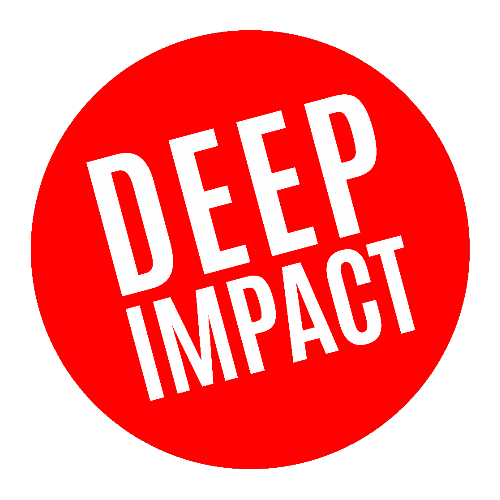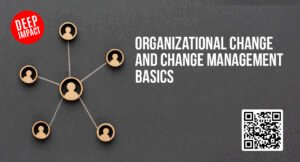In today’s competitive business landscape, effective leadership is crucial for organizational success. Whether you’re looking to enhance specific skills, improve overall leadership effectiveness, or drive cultural change, selecting the right leadership provider in Singapore is key. Here’s a comprehensive guide to help you make an informed decision.
Understanding Your Needs

The first step in choosing the best leadership provider in Singapore is to clearly understand your organization’s needs. Identify your objectives—are you aiming to enhance specific skills, improve overall leadership effectiveness, or drive cultural change? Additionally, consider who will be participating in the training. Knowing whether your target audience consists of senior leaders, mid-level managers, or emerging leaders will help you narrow down your options.
Researching Providers in Singapore
Once you’ve defined your needs, it’s time to research potential providers in Singapore. Look for those with a proven track record of success. Reading testimonials, case studies, and reviews can give you valuable insights into a provider’s reputation. Additionally, consider their industry expertise. Providers that specialize in your sector will have a better understanding of the specific challenges and needs you face.
Assessing Program Content
A thorough review of the curriculum is essential. Ensure that the content covers the areas most relevant to your needs, striking a balance between theoretical knowledge and practical application. Customization is another critical factor. The best providers in Singapore offer tailored programs that align with your organization’s specific goals and challenges.
Evaluating Delivery Methods in Singapore
Leadership training can be delivered in various formats, including in-person, online, or hybrid. Choose the format that best suits your logistical constraints and participant preferences. Engagement is key—opt for providers in Singapore that use interactive and engaging training methods, incorporating multimedia elements, storytelling, and practical exercises.
Examining Facilitator Credentials
The quality of the facilitators can make or break a leadership training program. Investigate their backgrounds to ensure they have extensive experience in leadership development and relevant industry knowledge. Their teaching style and approach should align with your organizational culture and values, ensuring a seamless integration of the training into your existing framework.
Checking for Support and Follow-Up
Effective leadership development doesn’t end when the training session concludes. Look for providers in Singapore that offer ongoing support, such as coaching, follow-up sessions, or access to additional resources. Additionally, ensure they have tools and methods to measure the impact of the training on participants and the organization.
Considering Logistics and Costs in Singapore
Budget is always a consideration. Ensure the training fits within your financial constraints while considering the potential return on investment. Scheduling flexibility is also important—the training should align with your organization’s timeline and participant availability.
Evaluating Technological Integration
In today’s digital age, the use of technology in training programs is increasingly important. Ensure the provider in Singapore uses reliable and user-friendly technology platforms, especially if you’re opting for online or hybrid training. Assess the quality of the digital resources and tools provided, such as online learning modules, interactive platforms, and mobile apps.
Seeking Feedback and References

Reading testimonials and case studies provides valuable insights, but taking it a step further by contacting references can offer firsthand feedback. Speak with previous clients to gauge their satisfaction and the effectiveness of the training.
Ensuring Alignment with Organizational Culture
Finally, the provider’s values, approach, and training philosophy should align with your organizational culture. Consider whether they have the potential to be a long-term partner in your leadership development journey, ensuring consistency and sustained growth over time.
Workshops vs. Leadership Journeys
When it comes to leadership development, it’s essential to distinguish between a one-time workshop and an ongoing leadership journey. Both have their merits, but they serve different purposes and have different impacts.
Workshops: These are typically short-term, one-off sessions that focus on specific skills or knowledge areas. They are ideal for addressing immediate needs and providing quick, actionable insights. Workshops can be highly effective for skill-building and immediate problem-solving. Unfortunately, there is little it can do to get a leader to act on what they have learnt. Many managers and leaders like to learn, but very few apply them actively.
Leadership Journeys: These are long-term, comprehensive programs designed to develop leadership capabilities over time. They often include multiple components such as workshops, coaching or achieving important milestones or key results. They work well because they constantly focus on leadership activities that build culture and attain results. Leadership journeys are more effective for deep, transformational change and sustained development. The challenge behind Journeys is that they require time and commitment to make it work.
A study by Bersin by Deloitte found that companies with strong leadership development programs are 1.5 times more likely to be in the top 5% of business performance. Investing in a leadership journey rather than a one-time workshop can yield significant long-term benefits for your organization.
Benefits of a Learning Journey vs A Workshop (Statistics)

1. Long-Term Impact:
Statistic: Organizations with strong leadership development programs see a 21% increase in overall organizational performance.
Insight: This highlights the significant long-term benefits of a comprehensive leadership journey compared to short-term workshops.
2. Employee Engagement:
Statistic: Companies that invest in comprehensive leadership development programs experience a 30% higher employee engagement rate compared to those that rely solely on workshops.
Insight: Ongoing leadership journeys foster sustained employee engagement, which is crucial for productivity and retention.
3. Skill Retention:
Statistic: Participants in extended leadership programs retain 60% more information and skills compared to those who only attend one-time workshops.
Insight: Learning journeys ensure better retention and application of leadership skills over time.
4. Return on Investment (ROI):
Statistic: Companies report a 29% higher ROI from leadership journeys than from standalone workshops .
Insight: The comprehensive nature of leadership journeys provides a greater return on investment, making them more cost-effective in the long run.
5. Leadership Effectiveness:
Statistic: Leadership journeys improve leadership effectiveness by 43%, compared to a 19% improvement from workshops alone .
Insight: The continuous development approach of leadership journeys leads to more significant improvements in leadership capabilities.
Conclusion
The decision between a local provider in Singapore and a well-known global brand depends on your organization’s specific needs, budget, and strategic goals. Local providers offer deep market knowledge, flexibility, and cost advantages, while global brands bring prestige, comprehensive resources, and access to global best practices. By carefully considering these pros and cons, you can select a leadership provider that best aligns with your organization’s objectives and context.
Whether you’re looking for a quick skill-building workshop or a comprehensive leadership journey, we have the expertise to help you achieve your goals. Contact us to discuss your needs to customize leadership development programs that drive real results.







